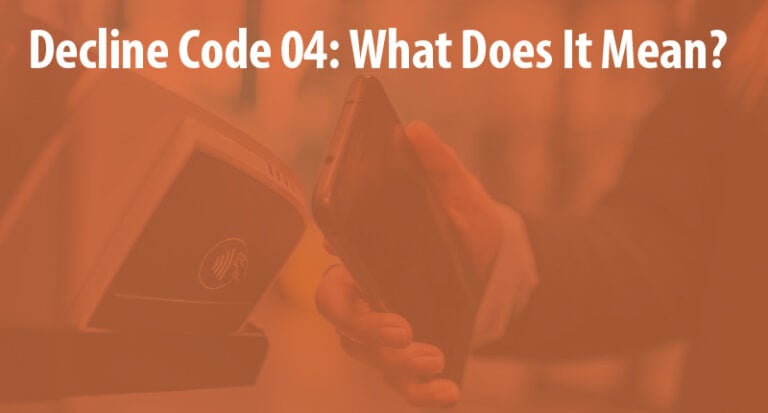What Does Decline Mean In Credit Card?

What Does Decline Mean In Credit Card
What Does Decline Mean in Credit Card?
Ever had that sinking feeling when trying to buy something with your credit card only to have it declined? You know you shouldn't be surprised – this happens to everyone from time to time – but it still stings. Not only that, but it also leaves you scratching your head with one question: what does decline mean in credit card?
If you've found yourself asking this question before, then you are not alone. Millions of people struggle to understand the meanings behind those three dreaded words that merchants throw up when their card gets declined. Well, it's time to put an end to the confusion and educate ourselves on all the aspects of this phenomenon.
Why does my credit card get declined?
The first question is an obvious one: why does it get declined in the first place? The answer to this is usually a simple one. The most common reason is insufficient funds in your account. This can happen either through a lack of money in the account, or by exceeding the credit limit. Merchants often also decline transactions if the address provided does not match the one that the card issuer has on file. This is a security precaution.
Another reason is that a card will get declined due to fraud. Financial institutions and merchants take extra precautions to protect customers from losing their money to fraudulent activity. If their systems spot a suspicious pattern – making purchases outside your usual spending habits, for example – they can decline the card.
What happens when my card is declined?
Did you know that everytime your credit card is declined it can still leave a mark? Credit bureaus take a look at what happened and record it in your credit report. This can sometimes have a negative impact on your score. This is why it's important to not only understand why it was declined in the first place, but also take steps to fix it as soon as possible.
The biggest consequence is that the card holder is usually unable to make the purchase that they wanted. Some merchants will allow you to pay another way, such as cash or debit. However, this isn't always an option. It's important to pay attention to the decline message and take the necessary steps to ensure that your subsequent attempts to make the payment are successful.
How to Avoid Credit Card Declines
To avoid being declined, it's important to keep track of your expenditure, so that you don't exceed your credit limit or spend more than you can afford. You should also ensure that all the information you provide is correct. This doesn't just apply to online purchases – it includes merchants who manually enter your information into their card terminals too.
Finally, it's worth considering setting up fraud alerts on your card. This will enable your card issuer to contact you if they notice any suspicious activity. This puts the power in your hands to allow or deny transactions as you see fit. If you see something suspicious, it is always best to err on the side of caution and deny the purchase.
Understanding What Decline Means in Credit Card
At the end of the day, being declined on a transaction does not have to spell disaster. You can use it as an opportunity to stay vigilant and remain in control of your finances. As long as you keep on top of your spending and keep your credit card details up to date, then you can avoid declines in the future.
Although it can be discouraging, knowing what does decline mean in credit card can help. Understanding the reasons behind it and taking steps to avoid or mitigate the consequences is key to avoiding future rejections. With that knowledge, you can go into every purchase feeling more confident and always be on the lookout for any surprising outcomes.
Post a Comment for "What Does Decline Mean In Credit Card?"